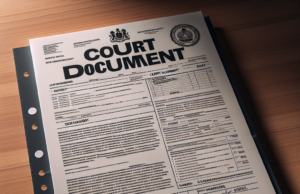Collaborative Prevalence At A Glance

Collaborative family law can often be utilized to help to divorce couples reach a mutually beneficial agreement, in fact, some studies have suggested a 95% success rate for resolutions utilizing collaborative family law.
Yet, not all couples will be able to utilize this practice, as it requires a certain degree of mutual respect and sympathy for each other.
In cases where couples are unable to get along, collaborative law may not be the proper approach for a settlement of a divorce.
However, many couples will find that collaborative law will effectively bring a resolution to all disputed issues that are related to the divorce.
In fact, even couples that have found themselves involved in the constant conflict have been pleasantly surprised with the collaborative family law experience.
Collaborative family law agreements can help families to retain any sense of shared goals and togetherness. Children of the spouses that utilize collaborative family law agreements often fair much better than children involved in other types of divorce.
In general, most parents want to achieve results that are in the best interest of the children. In collaborative family law, parents work together to realistically access the needs of the children and the manner in which those needs can be met.
On the other hand, cases that end up in divorce court leave all of the decisions in the judge’s hands.
While judges strive to make the best decisions, they do not have ample time to get to know every member of the family unit or understand that particular family’s dynamics.
Because of the vast success of collaborative law, many states have taken action on making determinations for the allowance of the practice. Many states now have rules and regulations in place for collaborative family law.
While some states have specific rules relating to collaborative law, others only have rules in place within local jurisdictions.
In any case, collaborative law is quickly becoming recognized as an effective manner in which to deal with conflict resolution.
However, some states have raised ethics issues regarding the agreement to avoid litigation, while introducing the possibility of enacting new rules and regulations as the process becomes more popular.
Collaborative law is quickly becoming the chosen method for divorcing couples that have remained in an amicable relationship. While many couples are able to settle their disputes through court-ordered mediation, collaborative law allows couples to avoid litigation altogether.
Avoiding court hearing allows for lower stress levels, and are often involved in fewer battles in order to reach a resolution; collaborative law is an effective way of avoiding further conflict among divorcing couples.















